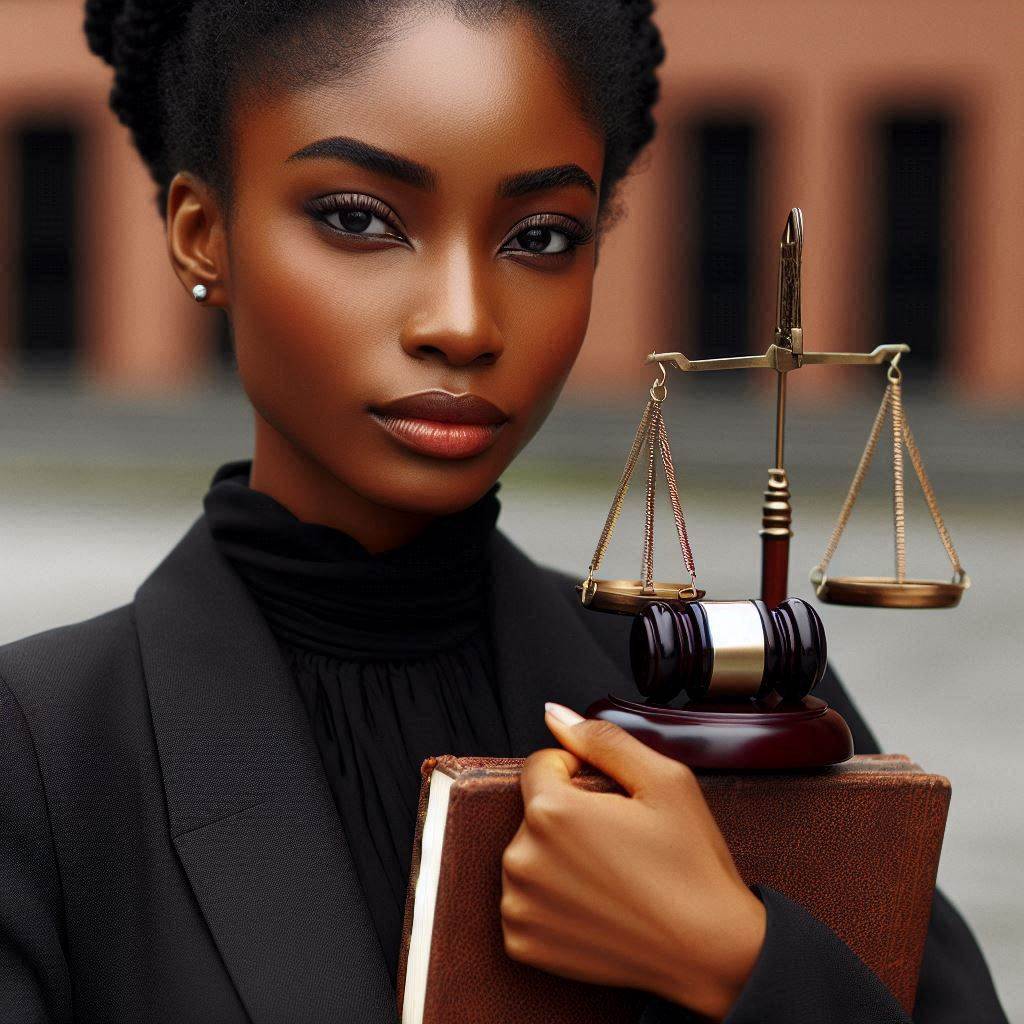Introduction
Human rights law safeguards the fundamental freedoms and rights of individuals. It protects citizens from abuses by the state and others. In Nigeria, human rights law plays a crucial role in maintaining justice and equality.
It ensures that every person is treated with dignity and respect, regardless of their background. Human rights law is essential for fostering a fair and just society.
It provides a framework for addressing grievances and holding violators accountable. In Nigeria, this legal framework is crucial for protecting citizens against abuses by authorities and other individuals.
It also promotes social justice by ensuring that everyone’s rights are recognized and upheld. The history of human rights law in Nigeria dates back to colonial times.
During the colonial era, human rights were often suppressed, leading to widespread abuses. However, the struggle for independence brought a renewed focus on human rights.
Post-independence, Nigeria adopted various international human rights treaties, signaling a commitment to global human rights standards.
The Legal Framework of Human Rights Law in Nigeria
The legal framework of human rights law in Nigeria is governed by various laws and international treaties, which play a crucial role in protecting the rights of individuals in the country.
Laws Governing Human Rights in Nigeria
- The Constitution of the Federal Republic of Nigeria
- The African Charter on Human and Peoples’ Rights
- The Universal Declaration of Human Rights
- The African Charter on the Rights and Welfare of the Child
- The Convention on the Elimination of All Forms of Discrimination against Women
These laws outline the fundamental rights and freedoms of individuals in Nigeria, such as the right to life, dignity, freedom of expression, and equality before the law.
Implementation and Enforcement of Human Rights Laws
The implementation and enforcement of human rights laws in Nigeria are primarily the responsibility of the government and its institutions, including the judiciary, law enforcement agencies, and human rights bodies.
The Nigerian judiciary plays a significant role in interpreting and applying human rights laws to protect individuals from violations by state and non-state actors. Courts have the power to enforce fundamental rights through judicial review and awards of compensations for rights violations.
Law enforcement agencies, such as the police and armed forces, are tasked with ensuring the protection of individuals’ rights and freedoms.
However, there have been reports of human rights abuses by security forces, highlighting the need for improved accountability and transparency in law enforcement practices.
Human rights bodies, such as the National Human Rights Commission (NHRC), are responsible for monitoring and promoting human rights in Nigeria. The NHRC conducts investigations, mediates disputes, and raises awareness about human rights issues in the country.
Challenges and Gaps in the Legal Framework
- Slow justice system: Delays in court proceedings affect access to justice for victims of human rights violations.
- Corruption: Bribery and inefficiency in the legal system undermine the enforcement of human rights laws.
- Weak enforcement mechanisms: Lack of capacity and resources hinder the effective enforcement of human rights laws in Nigeria.
- Discrimination: Marginalized groups, such as women, children, and persons with disabilities, continue to face discrimination and social stigmatization in Nigerian society.
Ultimately, while Nigeria has made significant strides in incorporating human rights laws into its legal framework, there are still challenges and gaps that need to be addressed to ensure the effective protection of individuals’ rights and freedoms in the country.
Key Provisions of Human Rights Law in Nigeria
Human rights are essential in promoting democracy, social justice, and the overall well-being of citizens in Nigeria. The Nigerian constitution guarantees certain fundamental human rights that are crucial for upholding the dignity and rights of individuals within the country.
Fundamental Human Rights Guaranteed by the Nigerian Constitution
The Nigerian Constitution enshrines several fundamental human rights that are considered paramount in protecting the rights and freedoms of Nigerian citizens. Some of these rights include:
- Right to life
- Right to dignity of the human person
- Right to personal liberty
- Right to fair hearing
- Right to freedom of expression
- Right to freedom of association
- Right to freedom of movement
- Right to freedom from discrimination
These rights are crucial in ensuring that individuals are treated fairly, equitably, and with respect in all aspects of their lives.
Significance of Human Rights in Promoting Democracy and Social Justice
Human rights play a vital role in promoting democracy and social justice in Nigeria by upholding the principles of equality, justice, and freedom for all individuals.
When these rights are respected and protected, it creates a society where everyone has equal opportunities, access to justice, and the right to express their opinions without fear of repression.
Additionally, human rights serve as a mechanism to hold the government and other institutions accountable for any violations of these rights. It ensures that individuals can seek legal redress and justice when their rights are infringed upon, fostering a more transparent and fair society.
Examples of Landmark Cases or Issues Related to Human Rights in Nigeria
Over the years, Nigeria has witnessed several landmark cases and issues related to human rights violations and advocacy. Some notable examples include
- The case of Ken Saro-Wiwa, an environmental activist who was executed by the Nigerian government in 1995 for his activism against oil pollution in the Niger Delta.
- The abduction of the Chibok schoolgirls by Boko Haram in 2014, which sparked global outrage and highlighted the need to protect the rights of women and children in conflict zones.
- The ongoing fight against police brutality and extrajudicial killings, exemplified by the #EndSARS protests in 2020, which called for an end to police brutality in Nigeria and demanded accountability for human rights abuses.
These cases and issues underscore the importance of upholding human rights in Nigeria and the need for continuous advocacy and activism to ensure that all individuals are treated with dignity, respect, and fairness.
Basically, human rights law in Nigeria is crucial in safeguarding the rights and freedoms of individuals, promoting democracy, and addressing social injustice.
It is essential for the government, civil society, and individuals to work together to uphold these rights and hold accountable those who seek to violate them.
Read: Roles and Responsibilities of Nigerian Lawyers
Institutions and Mechanisms for Protecting Human Rights in Nigeria
Government Agencies
- The National Human Rights Commission (NHRC) is the primary agency responsible for promoting and protecting human rights in Nigeria.
- The NHRC investigates human rights violations, provides legal assistance to victims, and monitors the government’s compliance with international human rights standards.
- The NHRC also educates the public about human rights and advocates for policy changes to enhance human rights protection.
Civil Society Organizations
- Civil society organizations play a vital role in monitoring and promoting human rights in Nigeria.
- Groups like the Civil Liberties Organisation (CLO) and Human Rights Watch advocate for human rights, conduct research, and raise awareness about violations.
- These organizations provide support to victims, document abuses, and engage in advocacy to hold perpetrators accountable.
International Bodies
- International organizations like the United Nations (UN) and the African Union (AU) also contribute to protecting human rights in Nigeria.
- The UN provides technical assistance, conducts human rights assessments, and supports capacity building for government institutions.
- The AU monitors human rights conditions in Nigeria and provides recommendations to improve compliance with international standards.
Successes and Shortcomings
- The NHRC has made significant progress in investigating human rights abuses and advocating for victims.
- Civil society organizations have been instrumental in raising awareness about human rights issues and holding the government accountable.
- However, these institutions face challenges such as insufficient funding, limited capacity, and political interference.
Ways to Strengthen Human Rights Protection
- Increase funding for the NHRC and other human rights institutions to enhance their capacity to investigate violations.
- Improve collaboration between government agencies, civil society organizations, and international bodies to address human rights issues effectively.
- Strengthen legal frameworks and mechanisms for enforcing human rights laws to ensure accountability for perpetrators of rights abuses.
Overall, a multi-dimensional approach involving government agencies, civil society organizations, and international bodies is crucial to protect and promote human rights in Nigeria effectively.
By addressing challenges and strengthening existing mechanisms, the country can make significant strides in upholding human rights for all its citizens.
Read: Understanding Nigerian Constitutional Law

Uncover the Details: Jurisprudence in Nigerian Courts: Key Cases
Uncover the Details: Understanding Industrial Law in Nigeria
Delve into the Subject: Navigating Civil Contracts: Legal Essentials in Nigeria
Learn More: Key Nigerian Legal Terms and Definitions
Emerging Issues in Human Rights Law in Nigeria
Identifying current trends or challenges facing human rights in Nigeria:
- One major issue is the lack of enforcement of human rights laws in Nigeria.
- Violations of human rights, such as extrajudicial killings, torture, and arbitrary arrests, are prevalent.
- Corruption within the justice system hampers the protection of human rights for all citizens.
- Freedom of expression is often curtailed, with journalists and activists facing threats and harassment.
- Women and girls continue to experience gender-based violence and discrimination in various aspects of their lives.
- There is a lack of access to justice for marginalized groups, including LGBTQ+ individuals and people with disabilities.
Issues such as gender equality, freedom of expression, and the rights of marginalized groups
- Gender equality is a pressing concern in Nigeria, with women and girls facing numerous obstacles in achieving equal rights.
- Violence against women, lack of economic empowerment, and limited access to education are significant challenges.
- Freedom of expression is a fundamental right that is often violated in Nigeria through censorship and crackdowns on dissent.
- Journalists, activists, and human rights defenders are targeted for speaking out against the government or powerful individuals.
- Marginalized groups, including LGBTQ+ individuals and people with disabilities, face discrimination and exclusion in Nigerian society.
- Their rights to equality, non-discrimination, and participation in decision-making processes are frequently disregarded.
Exploring potential solutions or strategies for addressing these issues
- Enhancing the enforcement of existing human rights laws through training and capacity-building for law enforcement officials.
- Implementing comprehensive reforms within the justice system to ensure accountability for human rights violations.
- Empowering women and girls through education, economic opportunities, and legal protections against gender-based violence.
- Creating safe spaces for freedom of expression, including protecting journalists and activists from threats and attacks.
- Promoting inclusivity and diversity through awareness campaigns, advocacy, and policies that protect the rights of marginalized groups.
- Engaging with civil society organizations, international partners, and grassroots movements to advocate for change and monitor progress.
Therefore, addressing emerging issues in human rights law in Nigeria requires a multi-faceted approach that involves legal reforms, awareness-raising, and collaboration among various stakeholders.
By focusing on enforcement, empowerment, and inclusivity, Nigeria can move towards a more just and equal society for all its citizens.
Read: Criminal Law in Nigeria: Key Concepts
Delve into the Subject: Understanding Civil Litigation Process in Nigerian Courts
Find Out More: Understanding Nigerian Election Law
Human Rights Violations and Remedies in Nigeria
Provide Examples of Common Human Rights Violations in Nigeria
Human rights violations in Nigeria are an ongoing concern. Common abuses include extrajudicial killings, torture, and arbitrary detention.
Police brutality remains a significant issue, particularly involving the Special Anti-Robbery Squad (SARS). Reports of unlawful arrests and inhumane treatment are widespread.
Another prevalent violation is the infringement on freedom of expression. Journalists and activists face harassment, arrests, and violence. The government often employs restrictive laws to silence dissent.
Additionally, discrimination against women and children persists, with harmful practices like child marriage and female genital mutilation still occurring.
Legal Avenues Available for Seeking Redress or Compensation for Human Rights Abuses
To address these violations, several legal avenues are available. The Nigerian Constitution guarantees fundamental human rights and provides a basis for legal action.
Victims can file complaints with the National Human Rights Commission (NHRC). The NHRC investigates abuses and recommends actions to the government.
Courts also play a crucial role in providing redress. Victims can seek justice through the judicial system, filing lawsuits against perpetrators.
The Fundamental Rights (Enforcement Procedure) Rules facilitate the enforcement of constitutional rights. This legal framework allows individuals to challenge human rights abuses directly in court.
International bodies offer additional avenues for redress. Nigeria is a signatory to several human rights treaties, such as the African Charter on Human and Peoples’ Rights.
Victims can petition the African Commission on Human and Peoples’ Rights for justice. The United Nations also provides mechanisms for reporting and addressing human rights violations.
Role of Advocacy and Public Awareness in Combating Human Rights Violations
Advocacy and public awareness are essential in combating these abuses. Non-governmental organizations (NGOs) play a vital role in this regard.
Groups like Amnesty International and Human Rights Watch document violations and raise awareness globally. Local NGOs, such as the Civil Liberties Organisation, focus on grassroots education and advocacy.
Public awareness campaigns help inform citizens about their rights. Media outlets and social media platforms amplify these messages, reaching a broader audience. Public pressure can lead to policy changes and accountability for human rights violations.
Education is another powerful tool in this fight. Schools and community programs teach citizens about their rights and legal remedies. This knowledge empowers individuals to stand up against abuses and seek justice.
Collaborations between NGOs, government agencies, and international bodies strengthen efforts to address human rights violations.
These partnerships provide resources, expertise, and a unified front against abuses. Engaging with global human rights mechanisms holds the Nigerian government accountable to international standards.
Read: Civil Law vs. Common Law in Nigeria
Find Out More: Nigerian Treaties and Public International Law
Gain More Insights: Role of Lawyers in Islamic Law Disputes
Find Out More: Major Legal Reforms in Common Law
Transform Your Career with Expert Guidance
Get personalized mentorship consulting that’s tailored to your unique path. Our expert advice is actionable and exclusive.
Get StartedConclusion
In closing, understanding human rights law in Nigeria is crucial for promoting justice and equality. Upholding human rights safeguards the dignity and well-being of all individuals in the country.
Strengthening human rights protections can lead to a more inclusive society and foster social cohesion.
By summarizing the key points discussed in this blog post, we highlight the significance of respecting human rights in Nigeria. It is essential to prioritize human rights to ensure that all citizens have access to justice and equal opportunities.
Moreover, the potential impact of strengthening human rights protections in Nigeria cannot be understated.
By upholding human rights, the country can experience positive development outcomes and enhance social harmony. Respect for human rights is essential for creating a just and equitable society where all individuals can thrive.
Overall, promoting human rights not only benefits individuals but also contributes to the overall progress of the nation. It is imperative for Nigeria to prioritize human rights to build a more prosperous and cohesive society for all its citizens.




